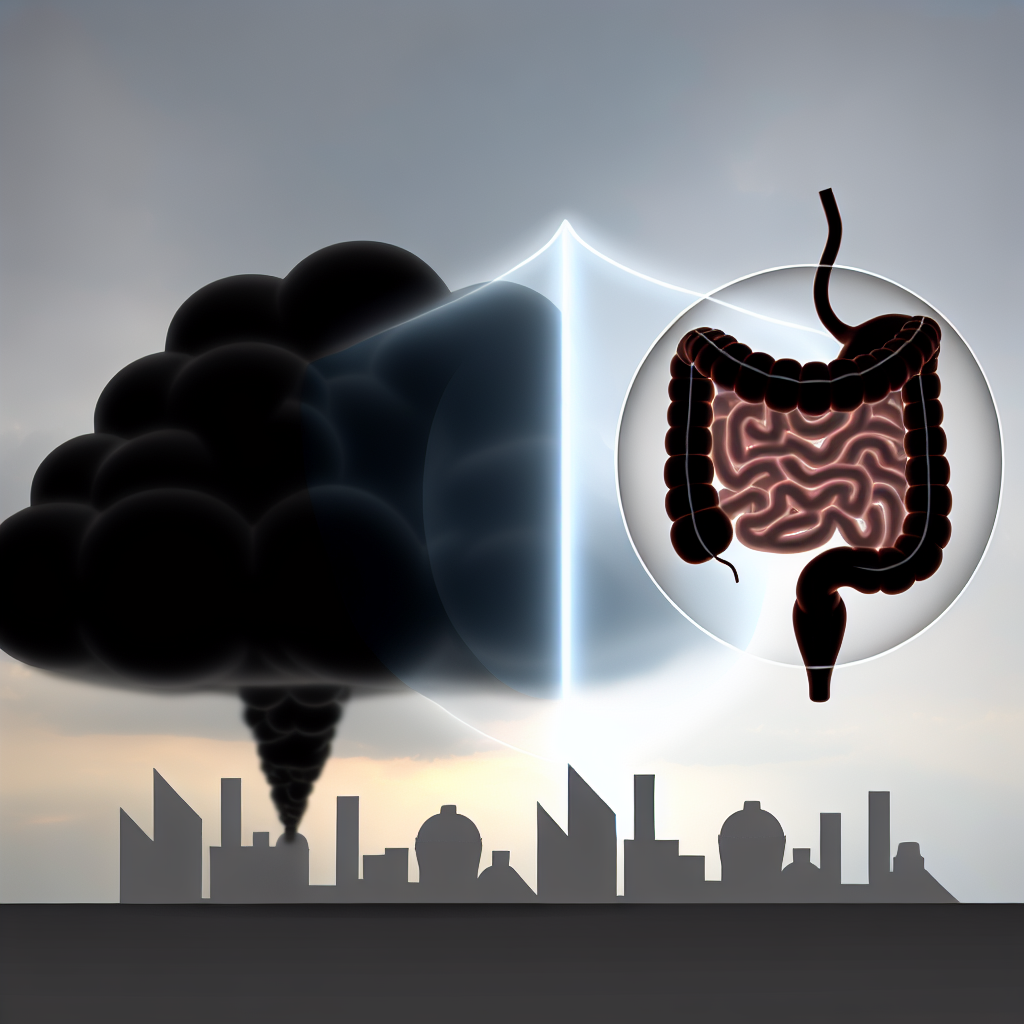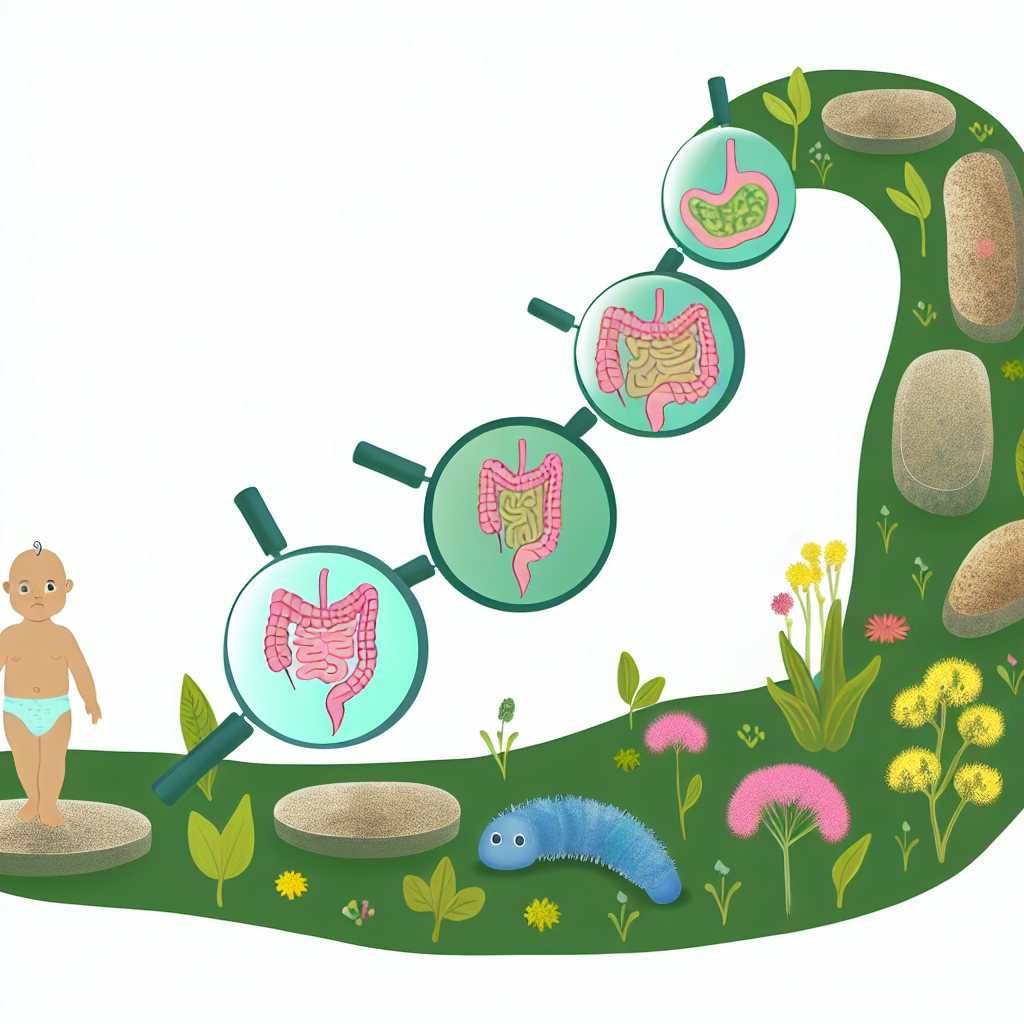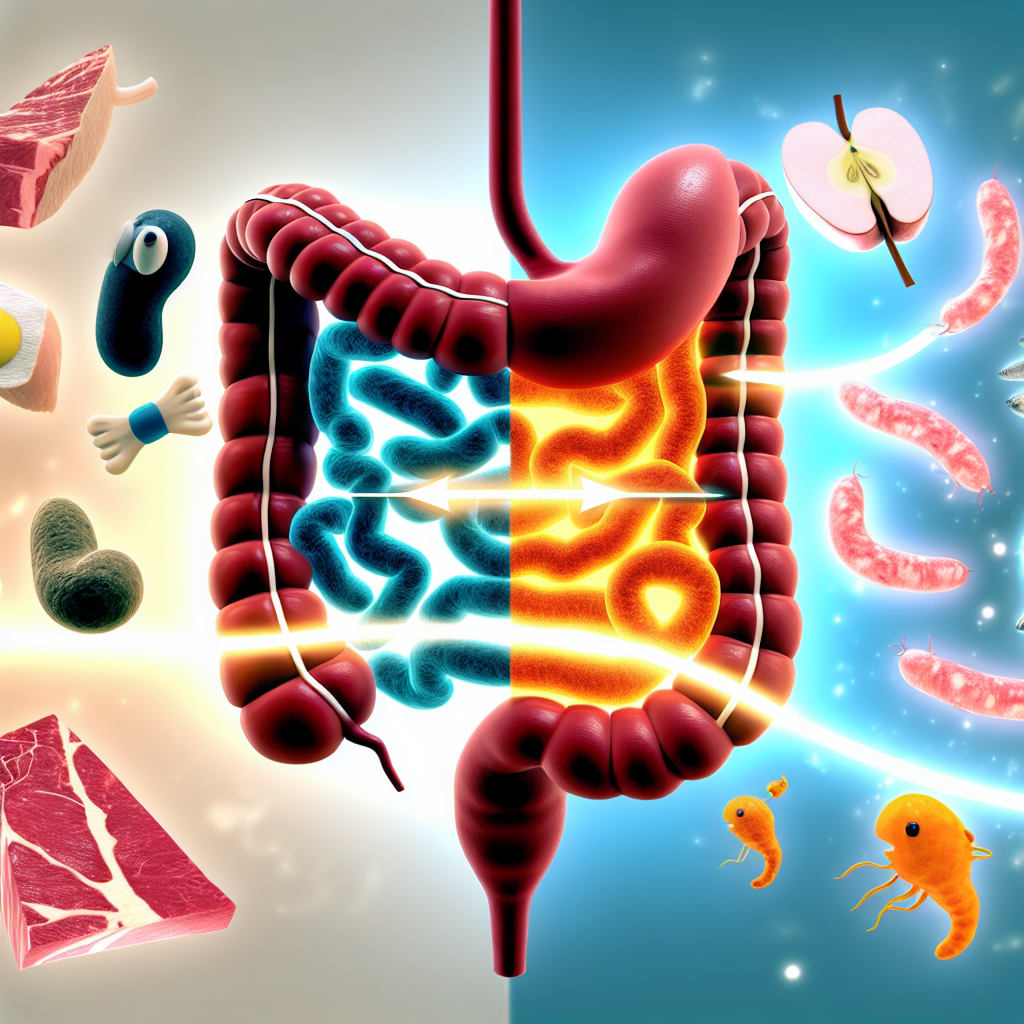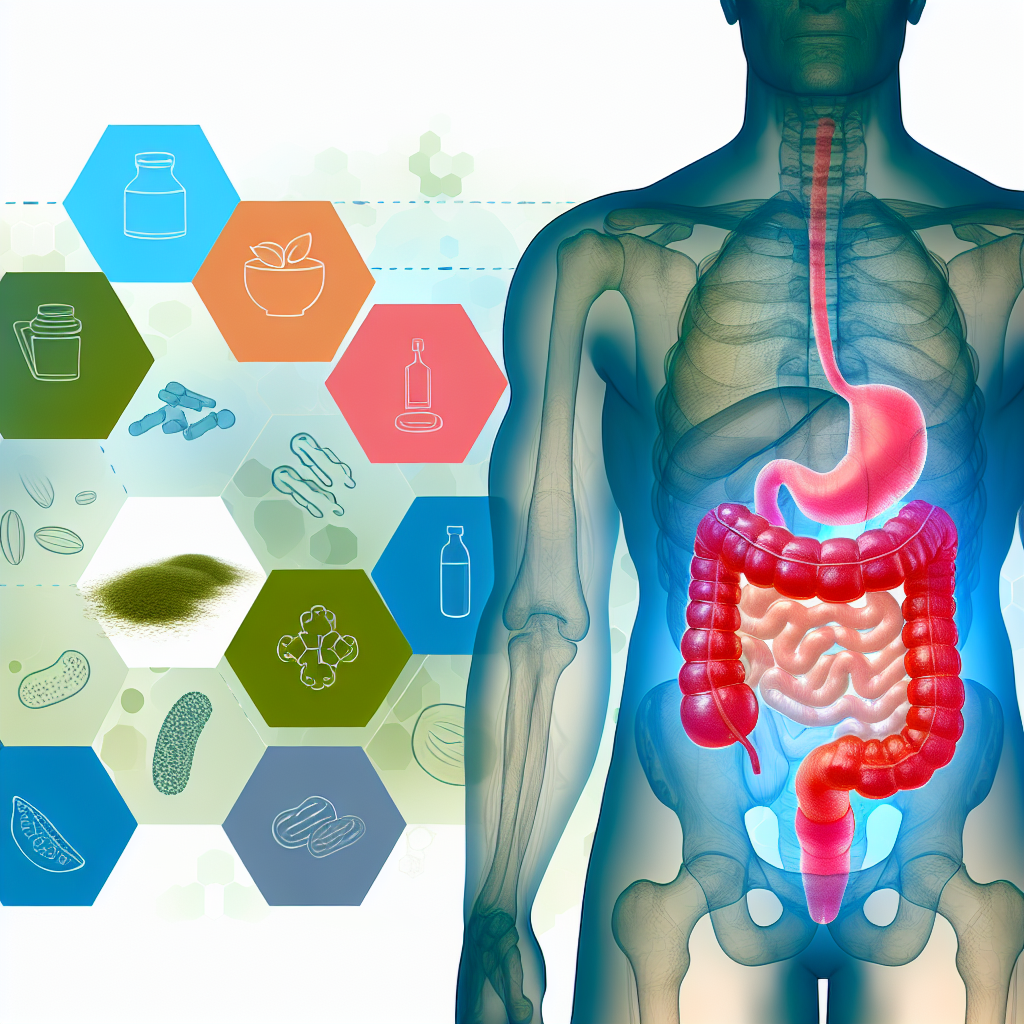# Air Pollution’s Impact on Intestinal Permeability: Natural Strategies to Protect Your Gut
Introduction
Every breath we take introduces invisible contaminants that can disrupt more than just our respiratory health. While most people associate air pollution primarily with lung and cardiovascular issues, emerging research suggests a surprising and lesser-known consequence: gastrointestinal damage, particularly increased intestinal permeability. Also known as “leaky gut,” this condition allows harmful substances to pass through the gut lining into the bloodstream, potentially triggering widespread inflammation and systemic disease.
Our intestinal barrier is composed of a tight layer of epithelial cells, bound together by strong junctions that protect the body from harmful toxins, pathogens, and undigested food particles. But when this barrier becomes compromised, it can lead to chronic digestive issues, autoimmune disorders, and metabolic imbalances. Recent studies are now showing a direct correlation between airborne pollutants and the deterioration of this critical gut barrier.
Breaking Down the Science: How Air Pollution Affects Your Gut
The connection between environmental pollutants and compromised gut health has become a growing field of research. A pivotal study published in *Nature Communications* in 2018 revealed that exposure to ambient air pollution significantly alters gut microbiota composition in both humans and animal models. The researchers found that particulate matter promotes systemic inflammation and negatively impacts the gut’s epithelial barrier ([Nature Communications, 2018](https://www.nature.com/articles/s41467-018-05387-8)).
Further investigation by researchers at the University of Colorado Boulder in 2021 demonstrated that exposure to ambient ozone and fine particulate matter can impair the intestinal lining, leading to increased levels of lipopolysaccharides (LPS) in the blood—a marker for leaky gut. This study, published in *Environmental Health Perspectives*, highlighted that 90% of people living in urban areas may be at risk due to ongoing exposure ([EHP, 2021](https://ehp.niehs.nih.gov/doi/10.1289/EHP7674)).
A key finding published in the *Journal of Clinical Investigation* showed that diesel exhaust particles not only disrupted intestinal integrity but also activated pro-inflammatory cytokines such as TNF-alpha and IL-6 through the gut-lung axis, further affirming a mechanistic link between respiratory exposure and gut health declines.
Animal studies confirm this trend, revealing that repeated exposure to PM2.5 leads to enhanced oxidative stress in gut tissues. This stress impairs tight junction proteins like occludin and claudin — crucial gatekeepers of gut lining integrity.
Why does this matter? Because increased intestinal permeability has been associated with conditions such as IBS, IBD, type 1 diabetes, autoimmune diseases, and even mental health issues like depression and anxiety via the gut-brain axis.
Natural Defenses: Strategies to Fortify and Protect Your Gut
Protecting the gut from environmental stress begins with building a strong, resilient intestinal barrier and maintaining a balanced microbiome. Here are scientifically backed strategies that harness the healing power of nature:
1. Power Up with Antioxidant-Rich Foods
Pollution elevates the body’s oxidative stress. Foods like blueberries, green tea, turmeric, and cruciferous vegetables help neutralize free radicals. Curcumin, the active compound in turmeric, has been shown to protect tight junctions and reduce intestinal permeability. ([PubMed Study](https://pubmed.ncbi.nlm.nih.gov/26528921/))
2. Probiotics & Fermented Friends: Strengthening the Microbiome
A diverse and healthy gut microbiome defends against pollution-related inflammation. Probiotics such as Lactobacillus rhamnosus GG and Bifidobacterium longum have been shown to restore gut lining integrity. Fermented foods like kefir, sauerkraut, miso, and kimchi encourage microbial diversity and resilience.
3. L-Glutamine: Fuel for Your Gut Lining
L-Glutamine is an essential amino acid for gut cell repair. Clinical studies show it can significantly reduce gut permeability, especially in inflammatory conditions like Crohn’s disease and IBS ([NIH Study](https://pubmed.ncbi.nlm.nih.gov/17228040/)).
4. Herbal Heroics: Adaptogens to the Rescue
Herbs like ashwagandha, holy basil, and licorice root have adaptogenic effects that help the body process environmental stress. Licorice root, in particular, has potent anti-inflammatory and mucosal-healing properties ideal for gut repair.
5. Quercetin & Zinc: Restoring the Gut Wall
Quercetin acts as a natural mast cell stabilizer and anti-inflammatory agent. Zinc plays a key role in mucosal healing and tight junction maintenance. Combined, they’re a powerful defense team — especially when paired with vitamin C for enhanced absorption.
6. Breathe Easy: Improving Air Quality Indoors
Protect your home environment with HEPA filters, air-purifying plants (like snake plant or peace lily), and by avoiding VOC-releasing products such as non-stick pans, aerosol sprays, and synthetic cleaners.
7. Mind-Gut Connection: Stress Reduction Heals the Gut
Stress weakens the gut barrier and worsens the effects of pollution. Daily practices like yoga, meditation, breathwork, or even short mindfulness breaks help reduce cortisol levels and improve vagal tone — essential for healthy digestion and gut repair.
Conclusion: Empowering Gut Health in a Polluted World
Air pollution continues to be an insidious threat — not just to our lungs, but to our entire ecosystem of health, including our gut. With growing scientific evidence linking airborne toxins to increased intestinal permeability, it’s crucial to integrate protective strategies that support gut resilience from the inside out.
Through a synergistic approach involving diet, herbal medicine, supplementation, air quality control, and mind-body practices, we can protect our digestive systems from the environmental stressors of modern life. While we may not eliminate air pollution overnight, we can strengthen our internal defenses naturally — preserving gut health as the foundation of whole-body well-being.
References
– [Nature Communications, “Ambient Air Pollution and Gut Microbiota in Humans and Mice”](https://www.nature.com/articles/s41467-018-05387-8)
– [Environmental Health Perspectives (2021), “Air Pollution and Intestinal Permeability”](https://ehp.niehs.nih.gov/doi/10.1289/EHP7674)
– [Journal of Clinical Investigation: “Diesel Exhaust Induces Gut Barrier Impairment and Inflammatory Response”](https://www.jci.org/articles/view/140438)
– [National Institutes of Health (NIH) on L-glutamine and Gut Health](https://pubmed.ncbi.nlm.nih.gov/17228040/)
– [Effects of Turmeric and Curcumin on Gut Integrity](https://pubmed.ncbi.nlm.nih.gov/26528921/)
Concise Summary:
Air pollution is a significant threat to gut health, as emerging research shows a direct link between airborne toxins and increased intestinal permeability, or “leaky gut.” This condition allows harmful substances to pass through the gut lining, triggering inflammation and systemic disease. Fortunately, natural strategies like antioxidant-rich foods, probiotics, herbs, and stress reduction can help fortify and protect the gut against environmental stressors.

Dominic E. is a passionate filmmaker navigating the exciting intersection of art and science. By day, he delves into the complexities of the human body as a full-time medical writer, meticulously translating intricate medical concepts into accessible and engaging narratives. By night, he explores the boundless realm of cinematic storytelling, crafting narratives that evoke emotion and challenge perspectives.
Film Student and Full-time Medical Writer for ContentVendor.com



